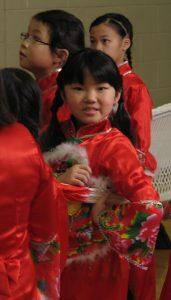
It is your holiday season, but there are no lights strung up around your town. No music relevant to your holiday plays in department stores or coffee shops. Your extended family cannot come visit because they are unable to miss work for the week. You must go to school and try to celebrate in the evening between homework and studying for tests the next day.
This is a reality for many students who observe holidays that the school does not take off for.
Senior Priya Roy has experienced the difficulties of celebrating days that the district does not recognize. As a practicing Hindu, Roy said she observes days such as Diwali, Duga Puja and Saraswati Puja, among others.
Duga Puja celebrates the mother goddess and is the biggest holiday for Bengali Hindus, Roy said. She added that Saraswati Puja recognizes the goddess of education.
“In the United States, we celebrate by going to temple and praying to Saraswati,” she said. “We’ll bring books and offer them in return for luck with our education.”
Senior Roshan Sivaraman also celebrates Diwali, as well as Navratri––a nine night celebration of life––in late October, and Pongal, which marks the beginning of spring.
“Diwali is the festival of light and new beginnings,” Sivaraman said. “There’s fireworks, henna, sweets…it’s really the biggest holiday in India.”
While Diwali spans six days, Sivaraman and Roy both said that they are often unable to observe it to its fullest extent due to the obstacles that school presents.
For example, Roy said that if school was taken off, she’d be able to spend more time with the Bengali community. However, because she does not miss school for these holidays, she instead limits her celebrations to evenings and weekends.
Similarly, senior Lou Cariello explained that she cannot enjoy holidays such as Chinese New Year or Mid-Autumn Festival in their traditional manner.
“[Both] celebrate families getting together, the new harvest, the new moon and the new year,” Cariello said. “They’re very family oriented.”
Chinese New Year, Cariello explained, focuses on bringing luck into the household.
“On Chinese New Year, you’re not supposed to clean because you don’t want to wash away the good luck,” she said. “But on Chinese New Year’s Eve, you’re supposed to do a deep clean of your house.”
While Cariello said that these days would typically involve a gathering of several generations of family and the preparation of dishes such as longevity noodles––handmade noodles that symbolize long life and prosperity––she said she is often unable to participate in these traditions due to school being in session.
The inability to fully celebrate these holidays, Cariello said, has made it difficult to appreciate the importance of her heritage.
“For Asian cultures specifically, the holidays are not viewed with the same importance even though they have deep rooted history and traditions,” she said.
However, she explained that she is trying to organize a Chinese New Year celebration in 2022 in order to bring some of the traditions––such as lion dancers––to the school.
Sophomore Eli Abel, who is Jewish and observes Hanukkah and Passover, said that family is also an important aspect of the holidays he celebrates.
Passover, Abel explained, is an eight day holiday about the freeing of the enslaved Jews from Egypt. The first night of Passover is marked with a Seder, a dinner with symbolic dishes and the convening of family members.
“When school isn’t let off, it’s less likely that you’ll be able to gather with your extended family, and holidays are a time to spend with family,” Abel explained.
Though students are permitted to miss school for religious observations, many choose not to in order to not fall behind with their schoolwork.
“[My parents] would rather have me miss a day at the temple than have my grades drop,” Sivaraman said.
Roy said that she normally does not take school off as well, for similar reasons––the work she misses is difficult to catch up on.
This year, she went to the Ohio State University for Diwali to participate in festivities with the students there, she added.
“I think that was helpful for me because at Bexley, there’s not a lot of other Hindu or Indian students to relate to,” Roy said. “That really helped me build a community and was a nice experience to celebrate my culture.”
While it is difficult to let school off for every holiday or for multiple days, Abel suggested that a long weekend could be beneficial to families.
“Because we have such a large Jewish demographic, it would allow more people to convene with their families,” he said.
Celebrating a holiday that is not recognized by the school presents challenges, but Roy said she understands that a small demographic of observers makes it hard to properly acknowledge these days.
“I think it’s helpful if teachers and faculty are more mindful that not everyone follows a Judeo-Christian faith,” Roy said. “It would be helpful if people could keep in mind we might be busier at different times, celebrating other religion’s holidays.”


















